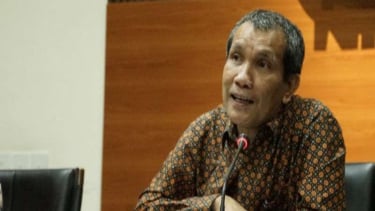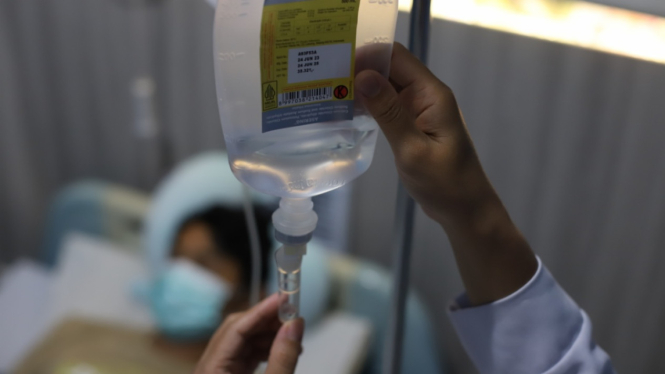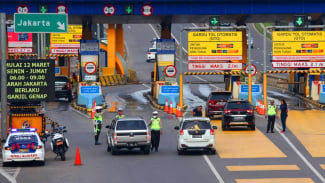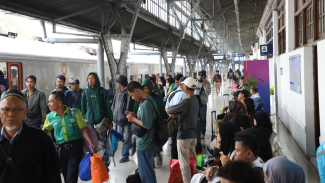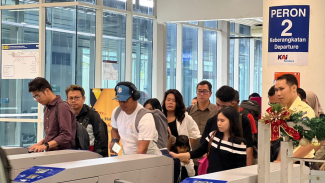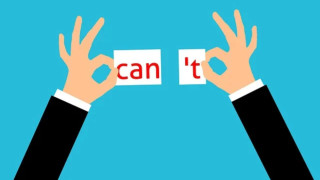VIVAnews - When I first heard that the translation of my book, “Pretext for Mass Murder: The September 30th Movement and Suharto’s Coup d’Etat in Indonesia” was banned, I had a déjà vu. It was like I was still living in the era of Suharto when every printed materials were censored, when college students were charged for reading books authored by Pramoedya Ananta Toer, when a lot of my friends were working anonymously and moving underground in the fight against the dictator. My body was tensed and my adrenaline was pumping.
It took me a while to breathe in and realize that it is the reform era. The book ban is an anomaly amid the remarkable progress in legal reform since 1998. Book bans are obsolete. It is part of nostalgic addiction to past simplicity, which is shown by the popularity of old-fashioned restaurants. The announcement from the AGO on December 23, 2009, was like an antique taken out of a dusty storage, bringing back the past when book bans did mean something, when the internet, scanners, flash disc and e-books were not as popular as today.
The people of Indonesia have had stronger confidence towards the rulers since 1998. Chancellors, historians, legal experts, journalists, parliament members and college students are opposing the recent ban. The usual comment is that the book ban underestimates people’s capability of choosing appropriate books. Mass media rarely publish supportive comments on the ban. As stated by scientist Benedict Anderson, who was forbidden to enter this country for decades because of his writing on 30 September Movement, Indonesia has new people and an old country.
As a historian, I am impressed that Indonesian laws on censorship are still in effect. In the middle of post-1998 legal reform, which is the one that created one of the most unrestrained press in Asia, laws ordering book censorship are anachronistic. The AGO bans my book by referring to Law no 4/ 1963 that gives the AGO ‘the power to forbid the distribution of printed materials which are considered able to disrupt public order’. The law, which was not legalized by the parliament, is from the period of Guided Democracy led by President Sukarno. He issued the law as a Presidential Decree.
The opening part of the law states that the law was designed to protect Indonesian revolution. That was Sukarno’s term. Suharto later took over the government and used the same term (referring to 30 September Movement as ‘contra-revolutionary’) but soon ignored it when he was able to get rid of Sukarno. Does the AGO ban the printed materials for the sake of Indonesian revolution? Is the nation still being prepared to fight Malaysia?
The AGO did not enforce all the sections in the Law no. 4. Publishers were supposed to send their books to the AGO within 48 hours after they are published. Nobody was doing it now. Sanctions for banned book distribution could be that of imprisonmented up to one year or a IDR 15.000 fine. I would rather pay the fine, thank you.
If the AGO is still faithful to Sukarnoism, they would surely praise my book. As much as I dislike authoritative aspects in the Guided Democracy, I fully respect intelligence, modesty and Sukarno’s anti-imperialism policy. I think my book could play a proper role of elaborating Sukarno’s skimpy three-level analysis on 30 September Movement: the bewilderment of Communist Party leader, the proficiency of neokolim subversion and the existence of irresponsible parties (who were apparently Suharto and his people). My book supports the metaphors used by Sukarno to describe the mass violence conducted in the name of 30 September Movement eradication: “Killing a rat by burning down the entire houses”.
The key duties of reformation period are dealing with the legacies of two authoritative administrations and creating a government that is based on the rule of law. Two prominent achievements are the fierce revocation of Anti Subversion Law 1963 by President Habibie and the dismissal of Bakorstanas, an intelligence body with absolute and undefined power that was coming from the emergency situation in October 1965 set by the late President Abdurrahman Wahid.
Reformation has harmed Law no. 4 / 1963 but has not killed it yet. The worth praising Press Law 1999 has cancelled the application of the law to newspapers, magazines and periodical publications and let it enforced to other kinds of printed materials. So, we are now facing an odd situation because the AGO has no power to censor or ban the press. But now, they are still able to impose bans to books, pamphlets and posters. If I published my article in serials in an academic journal, the article could not be banned. Former Constitutional Court Head Jimmy Asshiddiqie told the press that Law no.4 is out of date.
A lot of countries have laws that order printed material bans, usually to overcome pornography. In most democratic society, bans are imposed through court. The Attorney General should openly discuss the matters disputed in a publication and try to influence the judges in the decision making. The attorney should be able to prove that a certain publication does violate the law. Writers and publishers could deliver their rebuttal. German law in the fight against the denial of the existence of Holocaust works this way: the attorney brought the case to the court. They did not ban the book immediately. Although I am against book bans everywhere, I think that open and transparent legal procedures are better than secret and authoritative procedures in a mysterious bureaucracy.
My publisher and I do not know exactly why my book was banned. We heard the news about the ban, just like anybody else, from the press. In the press release on December 23, the AGO only gives one reason for its action: my book has disrupted public order. In an official forum on a TV talk show on December 28, the spokesperson of the AGO, according to the text message sent by a friend, gave three more specific reasons: my book is provocative, against the 1945 Constitution and Pancasila and promote communism. How the AGO could come to this interpretation remains a mystery. Probably the AGO officials, like when they banned Pramoedya’s books in 1980s, refers to a really advanced interpretation science that is able to trace hidden and implicit messages. Someone could interpret book bans as opposing acts against the constitution (Article 28C and 28F).
The AGO spokesperson said that his office has enlisted 143 parts of my book that are considered inappropriate. It will be very educational for me, other historians, and the people if we could read the report completely. If not, we will not be able to get the idea of what we should not do in the future when it comes to writing Until today, the AGO has not even delivered the referred decree.
The banning team, which is called the Clearing House, has worked for over a year. By conducting such long and in-depth research on my book, the AGO has made my academic colleagues, who reviewed my book earlier, look sluggish and careless. It will be unfortunate if all the policies obtained by the Clearing House are neatly kept inside the drawer of the AGO’s office desk.
However, the AGO assumes the report is supposed to be kept. The people of Indonesia are unreliable ‘floating masses’, as described by the intelligence emperor during the era of Soeharto, Ali Moertopo. The spokesperson of the AGO said,” We will not explain the reasons of the ban in details because the public, especially those in the low level, will react in a way that would trigger a conflict”. I am guessing who the people in the low level are and how they would be infuriated after reading 300 pages of academic books and assess the report through 143 points.
My book, which is originally published by a university publisher in the US, follows the method of historical research that is normally adopted: the book is based on the study on primary resources with the possible widest range, presenting materials from new primary sources, critically judging the sources, discussing how other researchers have interpreted the sources and coming to a conclusion based on available evidences. The book aims to contribute to the continuous discussion among the society about events occurred around 1965 and 1966. The book is supposed to help them who disagree with the arguments proposed by the book in order to strengthen their own arguments.
There have been a lot of books published since the fall of Suharto in 1998, criticizing Suharto’s regime on the events happened between 1965 and 1966. Except for several textbooks in 2007, none was officially banned. I do not think my book is so special that it deserves an award. My book actually supports some of the versions of Suharto’s regime (on the role of Chusus Bureau in the Communist Party) even though the books deny other matters (such as the claim saying that every Communist Party member is responsible for the 30 September Movement). Many of Marxist books, including the Capital by Marx, were not banned. How could my book, with all the critics against the Communist Party who spreads communism, is better than Marx’s writings?
I am worried that the AGO does not have enough staff members to read all the books that are considered suspicious. However, the AGO is facing financial constraints and there are a lot of other tasks that have to be finished, such as charging a housewife (Prita Mulyasari) who was complaining on a private e-mail about a poor hospital service, working on the case of an old and impoverished lady (Minah) who stole three cocoa beans from a plant, and a journalist (Bersihar Lubis) who quoted Joesoef Isak (the founder of Hasta Mitra who also published my book) who called the AGO dumb 25 years ago.
While examining my book, the office also had to deny a corruption allegation. The president said there was a ‘justice mod’. The Delapan Team, which was formed by the president, recommended the AGO to be drastically reformed in November 2009. Solicitor General on Intelligence, Wisnu Subroto, who was responsible for the Clearing House when my book was being looked into, suddenly filed a resignation in mid 2009 after evidences proving that he was involved in a corruption case was found. I was wondering if the AGO is the right place to decide on the right version of Indonesian history.
In this commercial era, some publishers wish their books to be banned to allow free advertising by the AGO. To assure that nobody is thinking about milking the sudden interest towards my book, my publisher and I have decided to remove the copyright from its Indonesian translation. At least 16 websites have uploaded all parts of the books to be downloaded for free. One of my book publishers, Institut Sejarah Sosial Indonesia, stated that the action is to eliminate boundaries in gaining knowledge except for the malignity and I think, slow internet connection.
The ban imposed to my book by the AGO has insulted remarkable development in legal reformation that has been achieved by Indonesia since 1998. The decision has created wrong impression on the country to the international world. If I were an Indonesian—just like the title of the famous essay written by Ki Hajar Dewantara, which was banned by the colonial government on 1913 for disrupting public order—I would believe, in line with Ki Hadjar, the Father of Indonesian Education, that this nation’s development relies on reading more books, not banning more books, and the people’s confidence and liberty, not the intellectual obedience forced by the country.
(The writer is the Associate Professor of History and the Deputy Head of History Department at the University of British Columbia, Vancouver, Canada)
Translated by: Nataya Ermanti
